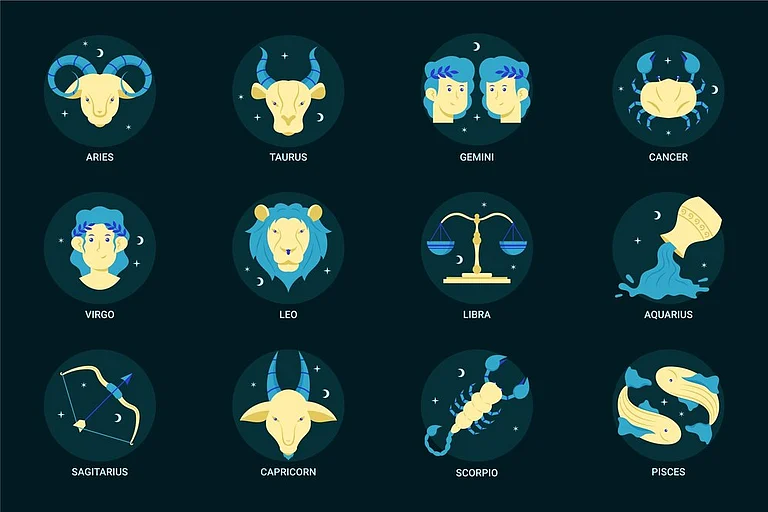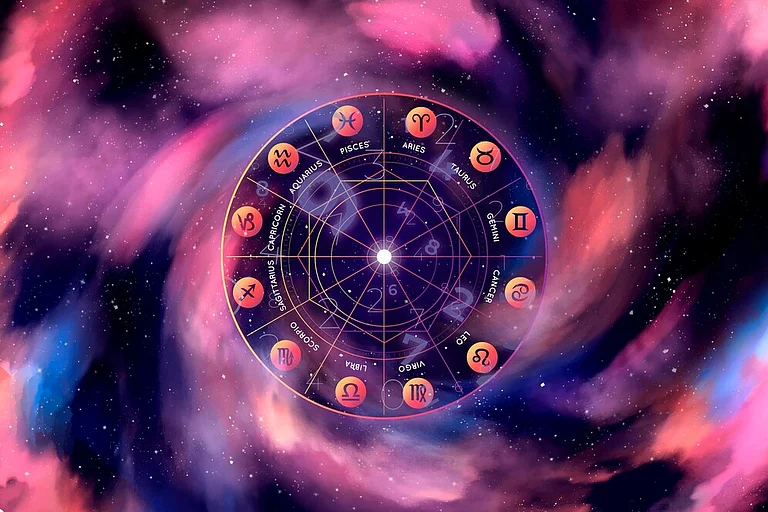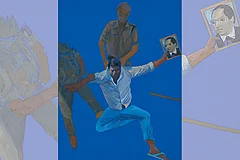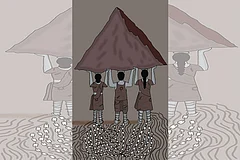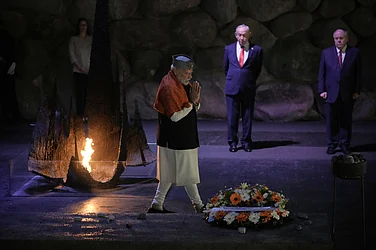A box is just a box. There is someone inside, and there is someone outside. But when I look at his box, I often wonder where this box came from.
When I was a child, I fell in love with cinema. It was a sort of head over heels, love at first sight. The act of making up stories; being able to fly anywhere that I liked, as if floating on a magic carpet somewhere in the clouds, was magical. While I was telling these stories to myself, I didn’t understand what I was making up fully but the act of being able to create the story from the beginning to the end, each time moved something inside me unequivocally.
I found myself making sense of the world without the story fully making sense always.
And that is the power of cinema. We think it’s about stories/storytelling, but somewhere it is about being ‘in the moment’. In a particular space; at a particular time; where we are able to connect to memories hidden deep inside; and, they take their own sensory collative form. Every child experiences this oneness with themselves as they grow up.
But as we grow up and fall in love with cinema or any other of our own chosen art forms even more, suddenly this box appears. This box begins to root us in the real world—telling us where we can go, and how far we can go. We fight with it, scream and rail against it, kick and box it, hoping to dent it. But the box stubbornly holds its shape.
Or at least pretends to.
And slowly, we lose the original impulse. Bit by bit. This box then, is essentially the commoditised version of the impulse. It reminds us of what has ‘worked’ and what will ‘work’. It scares us with the ultimate threat. You want to keep doing what you love, day in and day out? Well then this is how it works. Films that ‘people want to watch’ at the theatres or on their own screens at home are pegged with recognisable parameters.
Making us forget that the earliest audience for that impulse was just us. Single. One.
That is the root power of cinema. It can move each one of us profoundly while we sit with others less than a foot away in a crowd, watching a giant screen. And this power is what studios commoditise by training our impulses. We are taught to feel love, pride, jealousy and anger in specific ways—and only in those specific ways. And we, the audience, in our singular and collective selves, embrace this power play, taken in by the might of the simplistic that makes sense of the chaotic world around us; forgetting the beauty of the child—who just craved for an experience. To just be there flying that plane in our tiny hands, voicing the engine hum, flying it endlessly, not knowing when, or where, or if that plane was going to land.
That is the banality of the story.
I reject this box. We reject this box. Dear Studio, tell me a story I can feel—each time anew. Not one that I can ‘understand’. Invest in people, not in products. Let me spend some more time with Stanley Kubrick, Michelangelo Antonioni, Satyajit Ray, Guru Dutt and Mrinal Sen. Because they are the ones who actually want to have a conversation with me. They’re not trying to sell me a box. This is the box from the outside. People scared, not wanting to ruffle any feathers. Trying to do enough to save their jobs. Sell more of what works. Not for a moment in turmoil over reducing the act of reflection to toothpaste.
And this unfortunately is the reflection of the times we live in. A capitalistic, numbers-driven world fast crumbling around us. We see it ending—falling to pieces bit by bit—but we stick our heads into the next mindless thing around us. Because the destruction is too massive to contend with. The box should stay safe until it explodes.
Newsflash. It will implode.
And the child will emerge. And seek connection in a time when everything will FEEL like nothing. When all the steroidal superheroness would be done and dusted; we would once again want to feel. Something real. Beyond artifice.
People are already tiring of it. Because cinema was never a spectacle. It is felt. In the here and now.
So what does this box look like from the inside? It is a bundle of fear. And need. Will my words connect? Does my thought impact? Will this ever get sold?
Should I care?
The child inside needs to live and breathe. It cannot exist in darkness. Closed inside this dastardly box. It needs to see the sky again. I need that plane to hang in space in my tiny hands for as long as I want. Because when it took off or when it’s going to land does not matter. What matters is the joy of flight. ‘Daro mat’.
What you feel sitting with a pen and paper, pouring out your feelings onto scraps of paper is far more visceral and archetypal than any prettily wrapped box handed out to you. And this is true for any art form. Even for all the doodles you do sitting in your office between filing away heaps of more boxes.
So protect the child. Nourish it. All of us better do.
Because this child is all we will be left with when the system freezes. This child will be the only evidence we have that we’re alive. That we live, love and laugh in many more complex and amazing ways than just the simplistic narrative peddled to us. From inside the box, find the little source of leaky light and nibble at it. Gnaw at it. Till you rip it open and all you see is light and the open sky.
Note to myself, from the inside of that deep, dark, lonely box—Happy Independence Day!
(Views expressed are personal)
MORE FROM THIS ISSUE
Kanu Behl Is An Award-Winning Filmmaker And The Director Of Titli And Agra
(This appeared in the print as 'The Banality Of Story')







